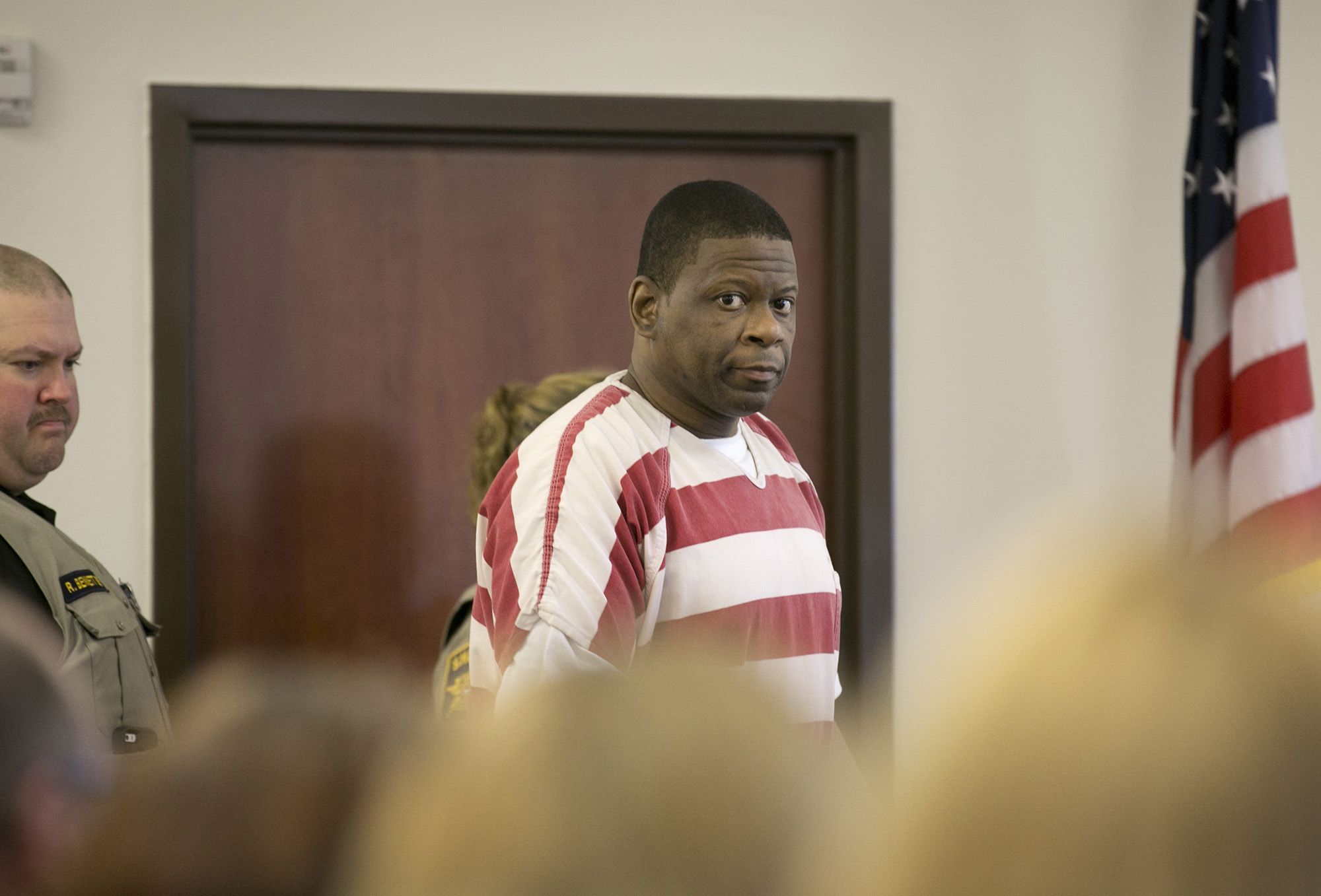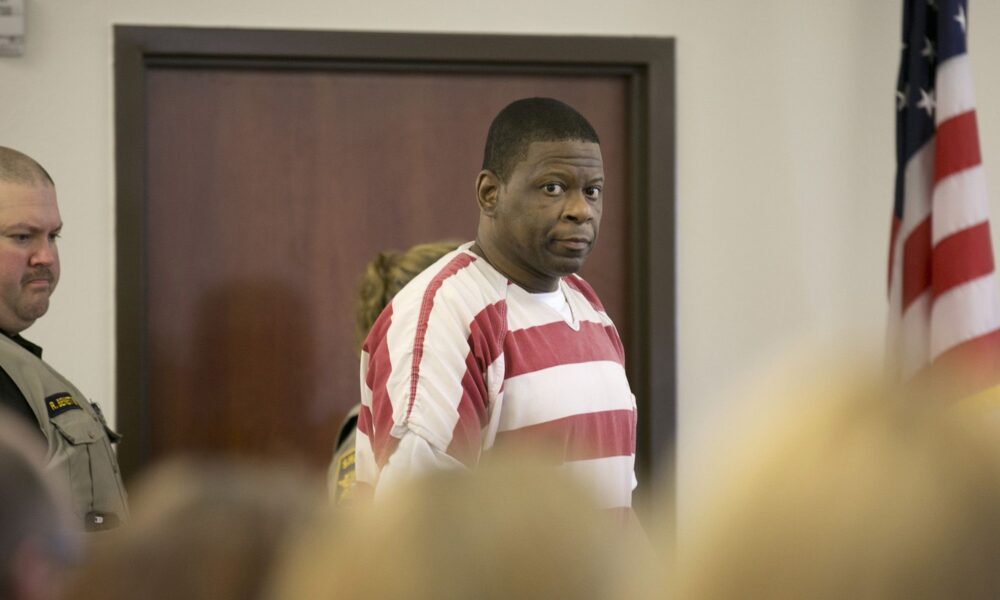International
US Supreme Court hears case of Texas man on death row

AFP | Charlotte Plantive
The US Supreme Court heard an appeal Tuesday from a Texas man on death row who maintains his innocence and whose case has drawn the attention of celebrities, lawmakers and millions of Americans.
The court did not address the merits of Rodney Reed’s case, but debated a narrow technical issue, relating to delays in criminal proceedings.
Its decision, expected before June 30, will however have a direct impact on the future of the 54-year-old Texan by authorizing the reopening of his case or, on the contrary, his execution by lethal injection.
Reed, an African-American man, was convicted by an all-white jury in 1998 of the rape and murder of Stacey Stites, a 19-year-old white woman.
Traces of his sperm were found on the victim’s body, but Reed insists he is innocent of the 1996 murder and that he and Stites had a secret consensual relationship.
Reed’s supporters believe that evidence gathered after the trial points to another suspect, Stites’s fiance Jimmy Fennell, a disgraced police officer who later served a 10-year prison sentence for a kidnapping and rape committed while on duty.
A fellow inmate says Fennell confessed to him that he had killed Stites because she was sleeping with a Black man.
Fennell has denied any involvement in Stites’s murder, but police initially considered him a suspect.
Texas prosecutors claimed during Reed’s trial that he had sexually assaulted several other women before Stites’s murder.
His execution was stayed just five days before it was to be carried out in 2019 following a campaign that included reality star Kim Kardashian, the singers Rihanna and Beyonce, and Texas lawmakers including Republican Senator Ted Cruz.
Two petitions seeking to halt Reed’s execution that circulated on the internet drew more than 3.5 million signatures.
DNA testing of murder weapon
To prove his innocence, Reed asked the Texas authorities in 2014 to conduct new DNA analysis on the murder weapon, a belt that was used to strangle Stites.
His appeals for DNA testing were repeatedly denied by the Texas Court of Criminal Appeals, so Reed turned to the federal courts.
But they refused to intervene on the grounds the request came too late, after the two-year window allowed to challenge a state court ruling in federal court had closed.
The question before the Supreme Court is, when does the window open?
At the hearing, judges appointed by Democrats seemed to be leaning in his favor.
“Isn’t that the simplest thing just to say (that) the person isn’t harmed until the state process has come to an end and we know for a fact what the state judgment is?” asked justice Elena Kagan.
Conservative justices, who regularly denounce the delaying tactics of death row inmates, did not show their preference.
Judge Samuel Alito merely noted the issue is “case specific and really quite narrow.”
Supporters of Reed gathered in front of the Supreme Court with a large banner proclaiming “Rodney Reed is innocent!”
International
Claudia Sheinbaum: Operation Against ‘El Mencho’ Was Based on Pending Arrest Warrants

Mexico’s President Claudia Sheinbaum on Wednesday rejected claims that the military operation that resulted in the death of Nemesio Oseguera Cervantes, known as “El Mencho,” leader of the Jalisco New Generation Cartel (CJNG), was carried out under pressure from the United States government.
Sheinbaum explained that the deployment of federal forces was aimed at executing outstanding arrest warrants against Oseguera Cervantes, who was considered one of the most wanted criminals in both Mexico and the United States.
“That was not the objective (to ease pressure from the United States). It is very important, and I want to repeat it. This individual had an arrest warrant, or several,” Sheinbaum said, referring to the operation conducted on February 22.
According to the president, the initial goal was to capture Oseguera Cervantes, but military forces responded after coming under attack during the intervention.
“The operation was to detain him. The problem is that they were attacked — the Secretariat of National Defense — and they responded at that moment,” she said.
The president insisted that the action was not carried out in response to external demands, although she acknowledged intelligence cooperation with the United States.
“It was not done in any way because of pressure from the United States, not at all. Of course, there was intelligence information from the United States that was used specifically,” she concluded.
International
Spain Denies Any Agreement to Cooperate with U.S. Military in Iran Operations
International
White House Says Spain Agrees to Cooperate with U.S. Military After Trump Threatens Trade Embargo

White House Press Secretary Karoline Leavitt said Wednesday that Spain has agreed “in recent hours” to cooperate with the U.S. military, following President Donald Trump’s threat to impose a trade embargo on Madrid.
Trump had warned of potential commercial measures after Spain reportedly refused to allow the Pentagon to use facilities at Spanish military bases for operations related to Iran.
“With respect to Spain, I think you heard the president’s message yesterday loud and clear, and I understand that in recent hours they have agreed to cooperate with the United States military,” Leavitt said during a press briefing.
She added that the U.S. military is currently coordinating with its counterparts in Spain. However, the president expects broader support.
“The president expects that all of Europe, all of our European allies, of course, will cooperate in this important mission — not only for the United States, but also for Europe,” Leavitt said.
Her remarks came in response to questions about Spain’s position and its role as a U.S. ally amid rising tensions surrounding operations involving Iran.
-

 International3 days ago
International3 days agoIran Reports 201 Dead, 747 Injured After U.S. and Israeli Strikes
-

 International2 days ago
International2 days agoBrazil’s Supreme Court Rejects Bolsonaro’s Bid for House Arrest
-

 International3 days ago
International3 days agoPope Leo XIV Urges End to ‘Spiral of Violence’ in Middle East
-

 International4 days ago
International4 days agoSecurity Council to Hold Emergency Meeting on Middle East Crisis
-

 Sin categoría4 days ago
Sin categoría4 days agoTrump: ‘We Think It’s True’ Amid Claims Iran’s Supreme Leader Was Killed
-

 International2 days ago
International2 days agoAnti-ICE Billboard Campaign Targets Immigration Spending in 31 U.S. Cities
-

 International2 days ago
International2 days agoTrump Warns of ‘Major Wave’ of Attacks as Iran Conflict Escalates
-

 International1 day ago
International1 day agoSpain’s Prime Minister to Address Nation Amid Trump’s Trade Threats
-

 International2 days ago
International2 days agoMexico Calls for Immediate Probe After National Dies in ICE Custody
-

 International2 days ago
International2 days agoBolivia Orders Three Investigations Into Deadly Military Plane Crash
-

 International1 day ago
International1 day agoNew York Announces First 2,000 Seats in Universal 2-K Program
-

 Central America2 days ago
Central America2 days agoPanama Canal Monitoring Trade as Middle East Conflict Disrupts Shipping
-

 Central America1 day ago
Central America1 day agoGuatemala’s Attorney General Fails in Bid for Top Court Seat Amid Corruption Allegations
-

 International1 day ago
International1 day agoWarner Bros. Developing First ‘Game of Thrones’ Movie With ‘Andor’ Writer
-

 International5 hours ago
International5 hours agoWhite House Says Spain Agrees to Cooperate with U.S. Military After Trump Threatens Trade Embargo
-

 International5 hours ago
International5 hours agoSpain Denies Any Agreement to Cooperate with U.S. Military in Iran Operations
-

 Central America5 hours ago
Central America5 hours agoNicaragua Held Responsible for Harassment of Opposition Prosecutor and His Family
-

 International5 hours ago
International5 hours agoClaudia Sheinbaum: Operation Against ‘El Mencho’ Was Based on Pending Arrest Warrants































